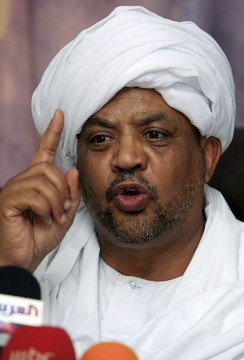Sudan’s PCP holds leadership meeting amid major challenges
July 19, 2013 (KHARTOUM) – Sudan’s opposition Popular Congress Party (PCP) will kick off a meeting for its leadership bureau on Friday amid severe financial crisis and dissatisfaction with its poor influence on the masses.

The PCP’s political secretary, Kamal Omer, said in a news conference on Wednesday that the summit convenes amid significant challenges facing the country including the economy, tribal conflicts, and the troubled relationship with South Sudan, as well as the civil wars.
He stressed that the meeting will discuss the political situation in the country and make arrangements for any possible developments in the near future.
The PCP official further said that the meeting will be held while his party is suffering from a severe financial problem, accusing the ruling National Congress Party (NCP) of confiscating 4 million SDG from the PCP’s money.
“The NCP continues to fund its political conventions from the government budget while seizing money of other political parties”, said Omer
Omer pointed that the meeting will take a firm stand to continue opposing the government and stressed that his party has not given up on its Islamic orientation, saying that the PCP’s relationship with opposition parties was based on restoring democracy and freedoms which do not contradict with the Islamic project.
He added that the opposition proposal for a transitional period and the Democratic Alternative Charter (DAC) would solve Sudan’s problems.
Last year, leaders of the opposition umbrella organization, National Consensus Forces (NCF) signed the DAC which unequivocally adopts the goal of regime change through “peaceful means” while outlining the basis of how the country should be governed afterward.
The text of the DCA adopts the use of “peaceful mass struggle” in the forms of civil disobedience and popular uprising to topple the regime and then establishes an interim government in which all political forces will be represented to rule the country for three years until a new constitution is installed and elections are held.
Omer ruled out that the recent developments in Egypt would be repeated in Sudan, saying that Sudanese opposition parties are more mature than the Egyptian parties which came to power on the ruins of a political regime that founded a deep state which is difficult to disband.
(ST)
